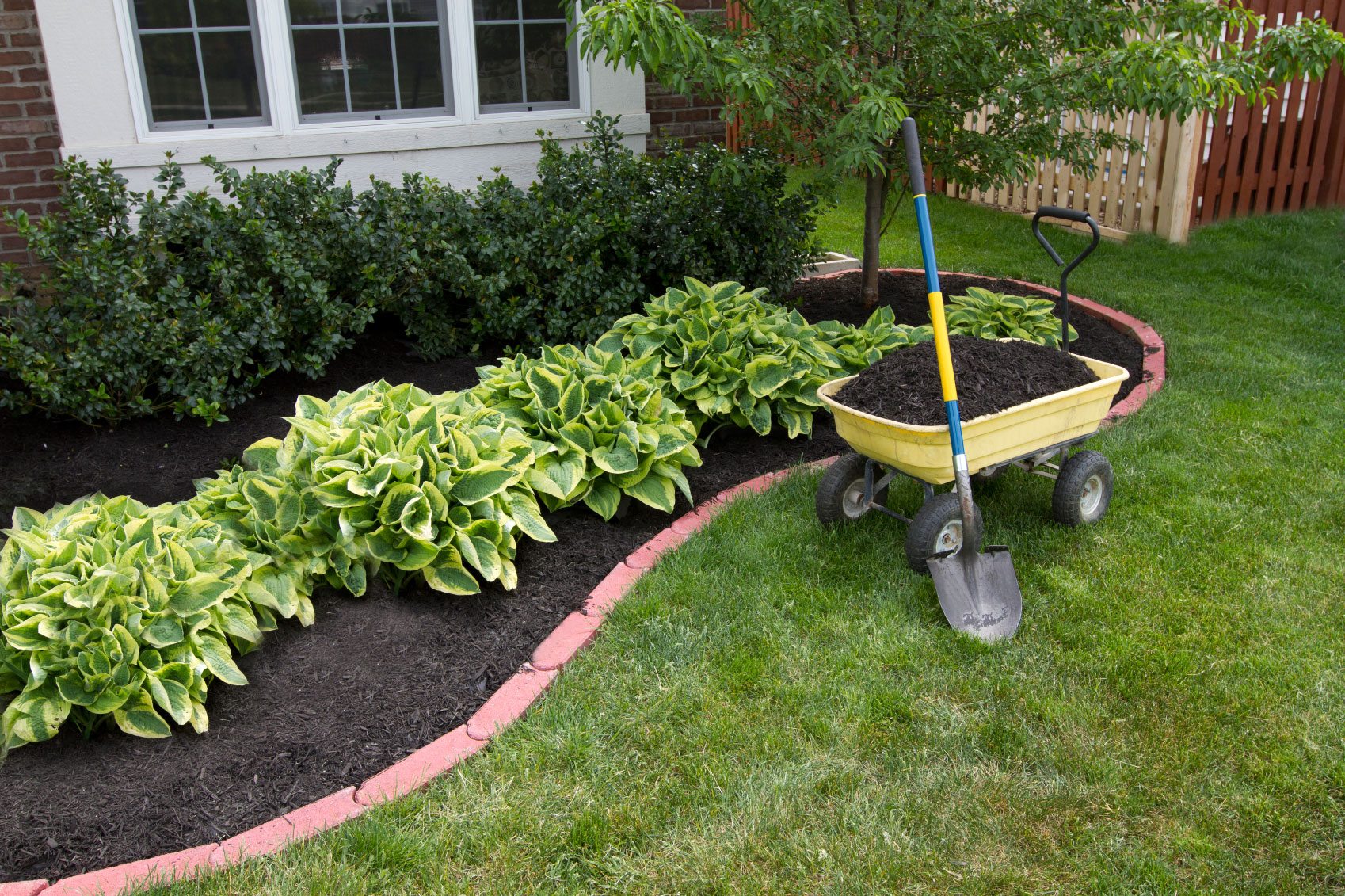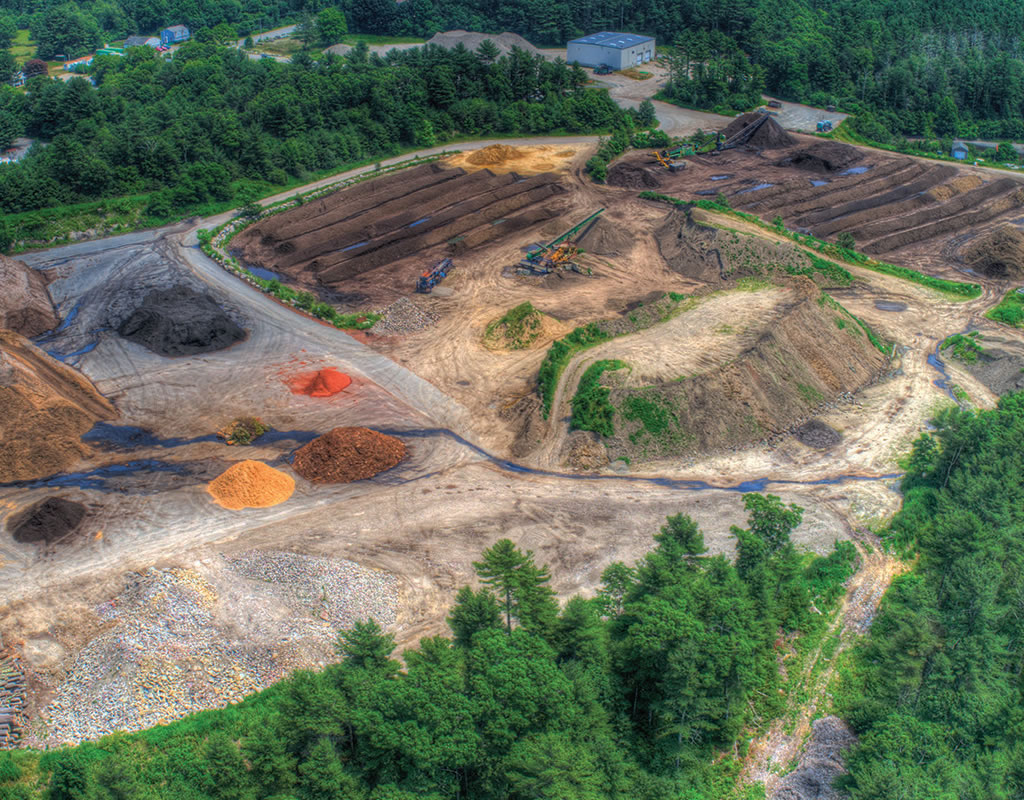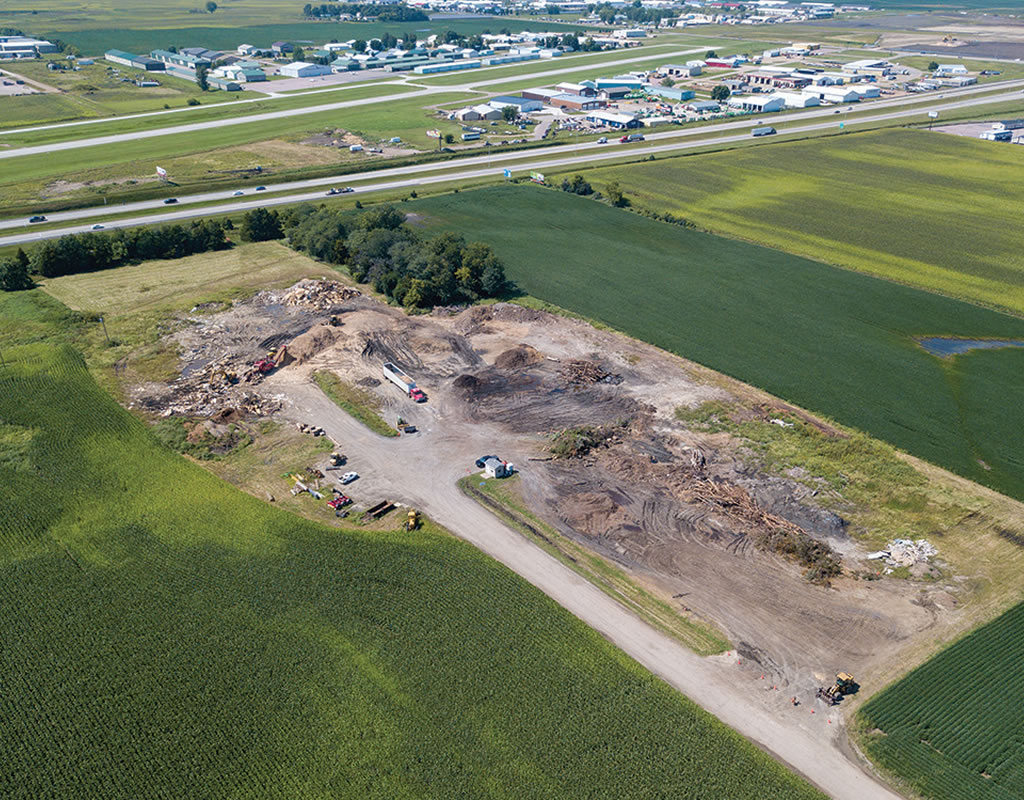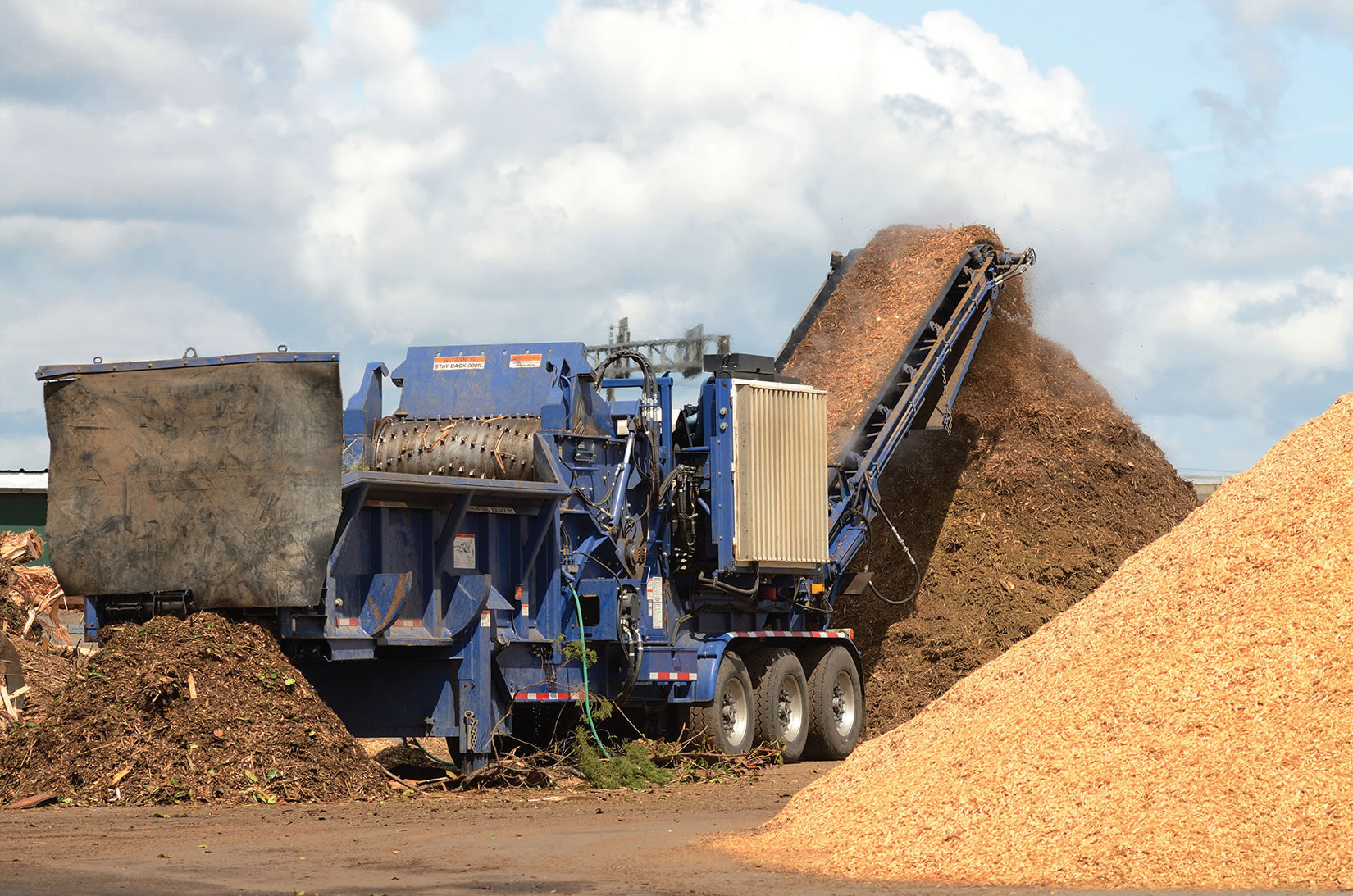By P.J. Heller
When Mark Highland launched Organic Mechanics Soil Company in 2006, his focus was on offering “earth friendly” soil products.
“There were no compost-based, peat-free potting soils on the market in 2006,” he recalls. “I saw that niche and went for it. Environmental sustainability is a core value at Organic Mechanics.”
Since the launch of that first product – its Premium Blend Potting Soil – the company has expanded its offering to some 40 retail and wholesale organic potting soils and soil amendments.
Headquartered in Modena, PA, the company manufactures and ships its products from a co-packing facility in Virginia directly to its customers. That arrangement came about after Organic Mechanics was nearly put out of business in 2021 during Hurricane Ida, when the nearby Brandywine Creek flooded the area, including the Organic Mechanics facility. It marked the fourth time the company was flooded, prompting Highland to look for an alternative location.
Organic Mechanics products are sold throughout the Mid-Atlantic, Northeast, Midwest, Great Lakes, Southern, and Southwest regions. Customers include garden centers, the Whole Foods Market supermarket chain, landscapers, homeowners, botanic gardens and farms. The company also does private label fulfillment.
“We don’t do much traditional advertising,” Highland notes. “All of our growth is through word of mouth and the internet.
“I thought in 2006 that when I launched this earth-friendly potting soil company that people would just switch in droves,” he says. “Of course, that’s not the case. It took time to build the client base that we have today. We've grown each year, whether it’s single-digit growth or double-digit growth … Every year we’ve increased sales by acquiring new customers. We’re constantly getting new customers because people learn about our products and try our products. Generally, once they try it, they love it and then they’ll switch, or they’ll start offering it in their garden center. That’s how we've grown every year.”
The company expects to sell more than a million bags of product this year.
Highland has also stayed true to the founding principle of offering earth-friendly products. One of the products that he is particularly keen on is biochar, which he says benefits soil and plant health as well as plant growth.
Biochar is pure carbon resulting from pyrolysis, which involves heating biomass at a high temperature for a certain amount of time in the absence of oxygen. Organic Mechanics uses softwood pine sustainably sourced from local Virginia tree farms as its feedstock; its carbon content averages more than 90 percent, Highland reports.
“There are so many benefits to having biochar in the ground,” he says. “It’s used to help retain moisture, retain nutrients, it’s a home for beneficial biology and it lasts practically forever in terms of a human lifetime. It’s a lifetime soil amendment. Apply it once and you’ll get all the benefits for years to come.”
The company’s first biochar soil amendment offering around 2014 was its Biochar Blend, which contains biochar, compost, earthworm castings, bone char, azomite (volcanic ash), zeolite, alfalfa meal, and kelp meal.
Today, biochar is incorporated into several of its other products, including its Cactus and Succulent Blend, and its first biochar-enhanced product, the Fuhgeddaboudit! Root Zone Feeder Packs. Biochar Blend can also be mixed with other soil products, such as the company’s Container Blend soil or its Seed Starting Blend.
Organic Mechanics plans to introduce itsa 110 Blend (10% Biochar Blend by volume mixed into a thewell-drained potting soil) early this year.
The company also sells biochar in bulk and in totes to other soil blenders and compost producers – Highland says he offers some of the most economical bulk prices in the industry – and is looking to greatly expand that business.
“It goes back to our core value of environmental sustainability,” he says.
“We want to see more biochar adoption because the more biochar that is incorporated in our soil, the better that soil will perform,” Highland explains. “It doesn’t matter whether we’re talking about farmers or landscapers or property owners . . . Putting biochar in the soil there’s a benefit to the soil, there’s a benefit to the plants growing in that soil … So, we’re trying to make the whole industry more sustainable by selling bulk biochar to other soil blenders.”
Highland says he was “ecstatic” to hear someone speaking about “What is Biochar” at last year’s Mulch & Soil Council annual meeting. His goal now is to convince soil and compost producers to incorporate biochar into their products, which he says offers both financial and competitive advantages.
“There are financial benefits that are very tangible, that will increase your bottom line, from putting biochar into your operation,” he tells them. “There are horticultural benefits that are very tangible. And it’s not that expensive to add.”
The quality of biochar is related to such things as the carbon content and pH of the biochar, he notes.
Highland and others have suggested biochar-amended soil could replace some peat in nursery applications. He also says biochar can replace some perlite, resulting in an improved soil product at a lower price point.
“You can choose to pass that savings on to your customer to get more business or you can enjoy increased margin, again the financial benefit of having it in there. So there are so many benefits to a soil producer using biochar.
“There’s money to be made by incorporating biochar into your compost or your soil,” he adds.
Compost operators, for example, can add biochar to stabilize and retain nutrients in the compost, which in turnwill helps control odors, he says.
“You’ve got windrows of compost out there,” he says. “There should be biochar in every single one of those windrows.”
Landscapers buying from soil and compost producers also benefit by being able to tout the advantages of biochar to their own customers, Highland says.
“They get to tell their customers that biochar is increasing the soil organic matter and carbon in the soil. It’s increasing water holding capacity, the nutrient holding capacity, it’s a home for beneficial microbes. It’s increasing water infiltration rates and it’s breaking up compaction.
“These are the nuts and bolts about the horticultural reasons to use biochar,” he says.
He notes, however, that raw biochar should not be put into gardens or landscapes, unless it’s a Green Stormwater InfrastructureInfrastructre application and the need is to pull nutrients and pollutants out of the watershed. For landscape use, bBiochar first needs to be inoculated, or charged up, such as mixing it with compost, or pre-inoculated like the company’s Biochar Blend.
“If you did put pure biochar in a garden, that is going to absorb nutrients out of the soil and if you do it in a garden area where there’s already plants, you’ll notice those plants will yellow,” he says. “You don’t want that. So, we don’t want to use raw biochar straight in our gardens.”
Highland says he has a good understanding of the industry to promote biochar. After graduating from the University of Florida with a degree in environmental horticulture, he worked on the West Coast for a landscape construction company and a certified organic farm. He then enrolled in graduate school at the University of Delaware’s Longwood Graduate Program, where he studied compost and potting soils. He subsequently worked as a compost and soil specialist at Longwood Gardens before starting Organic Mechanics.
“I’ve been in the shoes of a loader operator. I’ve been in the shoes of a compost site manager. So, I understand what is going through their head when they do their job day to day. We understand all those aspects of production and site management, but in the end, there are these benefits to incorporating biochar,” he says.
Biochar advocates also cite the product as a way to help fight climate change.
“With carbon sequestration, when we put biochar in the ground, for every ton ofthe amount of CO2 material that is sequestered depends on the carbon content and moisture content of the biochar., you’ve essentially put in almost three tons of carbon in the ground.” Highland explains. “It has to do with how much this material weighs to start with versus what it weighs once it’s cooked, once all the flammable things have been burned off, the moisture is burned out of it.”
Biochar is quenched with water or steam to stop the combustion, however, so finished biochar has moisture added back to it, which helps it be less dusty and easier to use, he says.
One tons of dry wood chips is about 0.9one ton of CO2 permanently sequestered in the ground, assuming the biochar is 90% carbon with 60% moisture, Highland says.
“Once it’s in the ground, it’s going to sit there for at least a human lifetime. We can’t promise 2,000 years as the USDA proved in the Terra Preta soils of the Amazon, but we do say that within a human lifetime, you won’t have to add it again once you add it at the recommended rate,” he says.
Highland says when he first started working with biochar in 2009, there were only a few hundred peer-reviewed articles about using it (knowledge about biochar has been around for millennia; its use traces to the Amazon Basin of South America more than 2,500 years ago). Today, he says, there are more than 30,000 peer-reviewed journal articles.
“It’s not a theory that biochar does what it does,” he says. “It’s past the point of theory. It’s proven.”
Highland cites Bartlett Tree Experts, the world's leading scientific tree and shrub care company, which he says has turned to biochar to help solve tree and soil problems.
“Companies are definitely tuning into biochar, seeing the benefits it holds for them and then acting on it,” he says. “But it shouldn’t be the world’s best kept secret. It should be shared so everybody can benefit from putting some biochar in their mixes. We hope to do that.”
Related News
Subscribe Today
Every other month, Soil & Mulch Producer
News brings you important stories about:
• New Technology
• Products
• Industry News
• Research Studies
Soil & Mulch Producer News features articles and services relevant to your daily operations.











